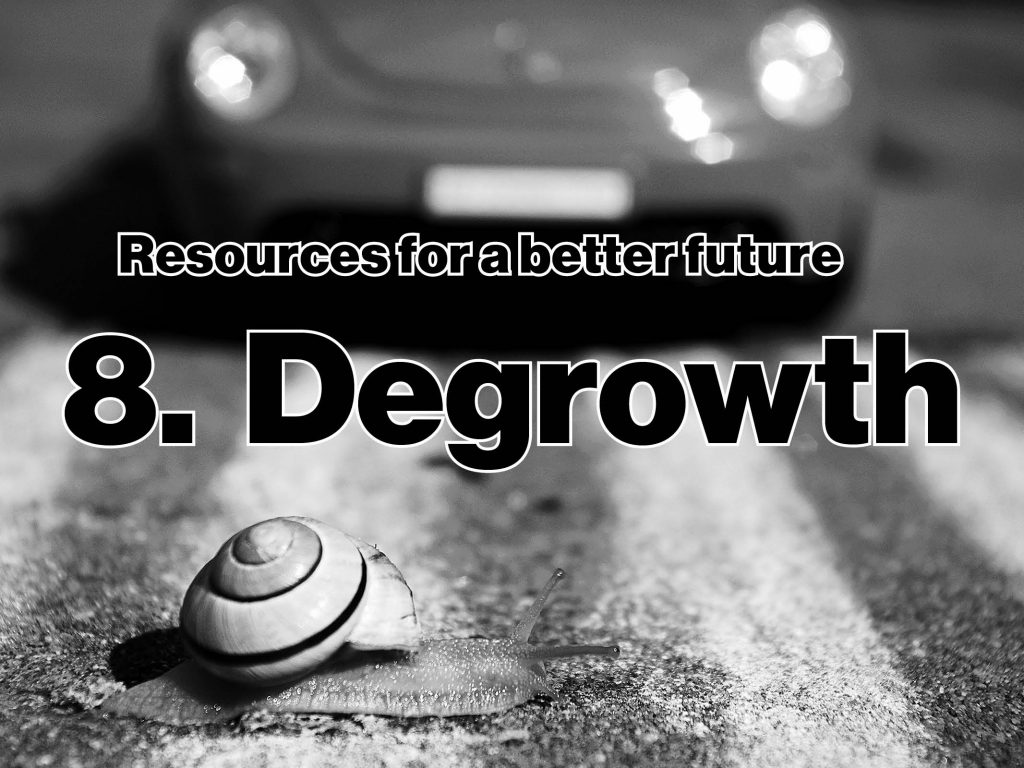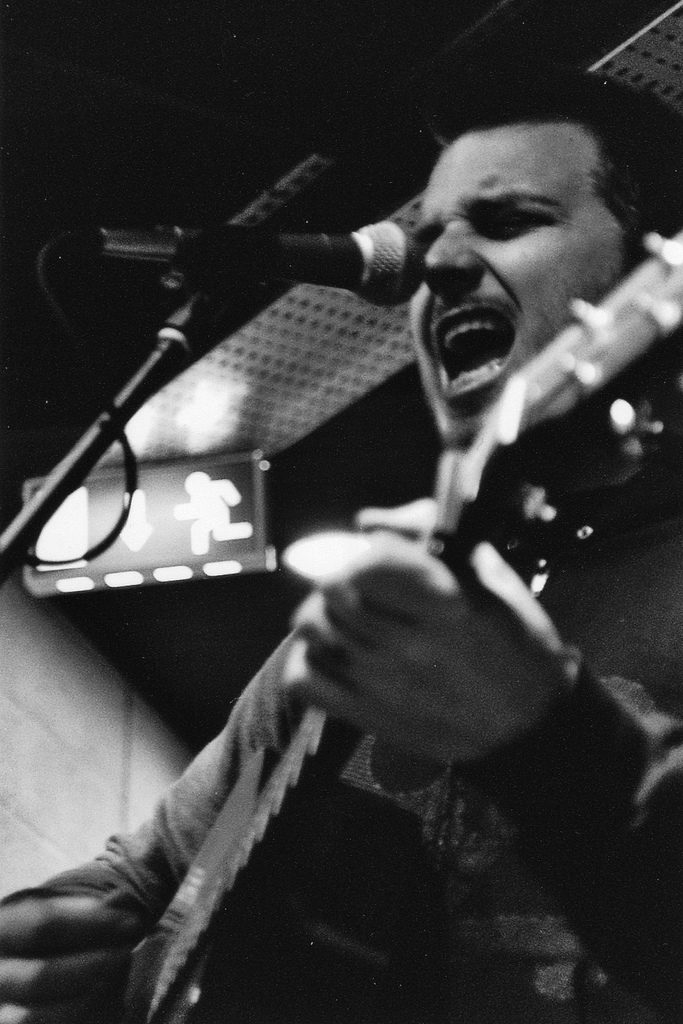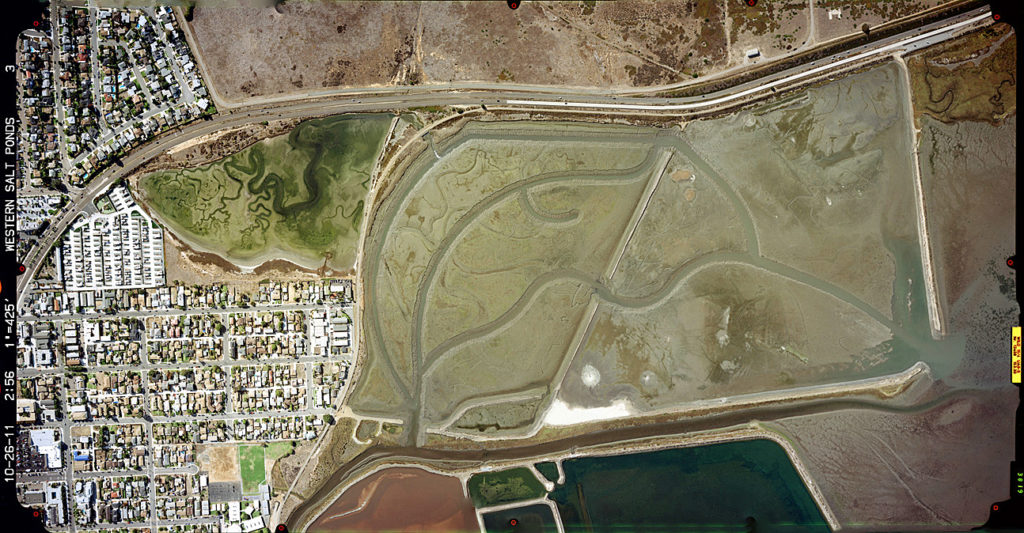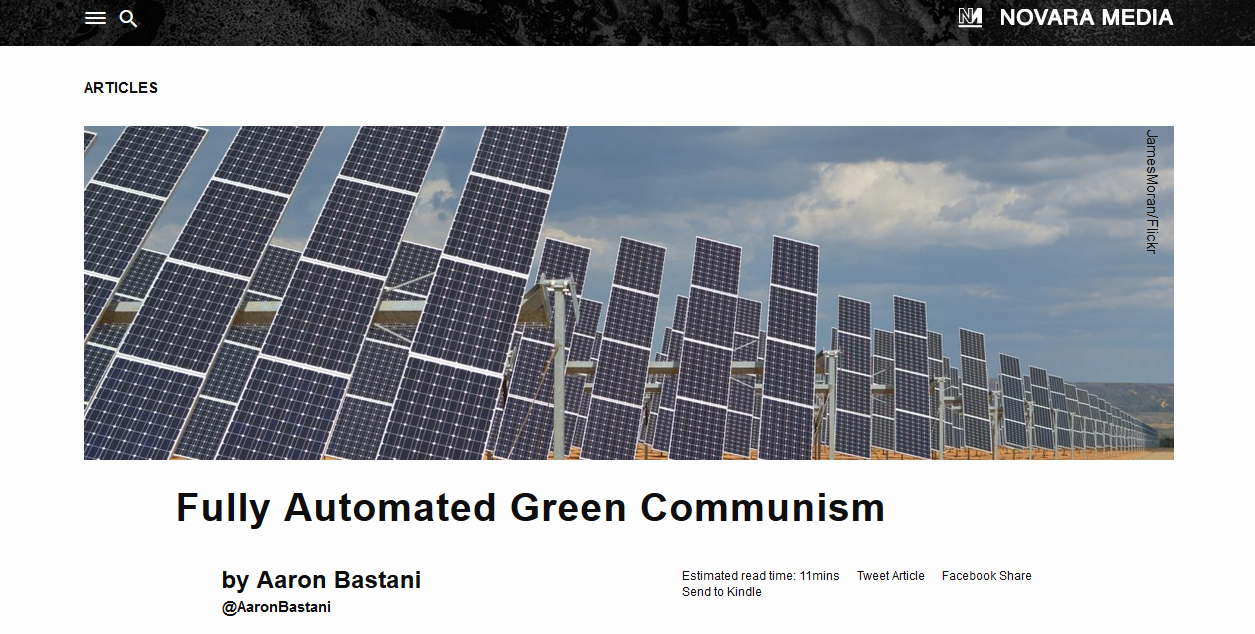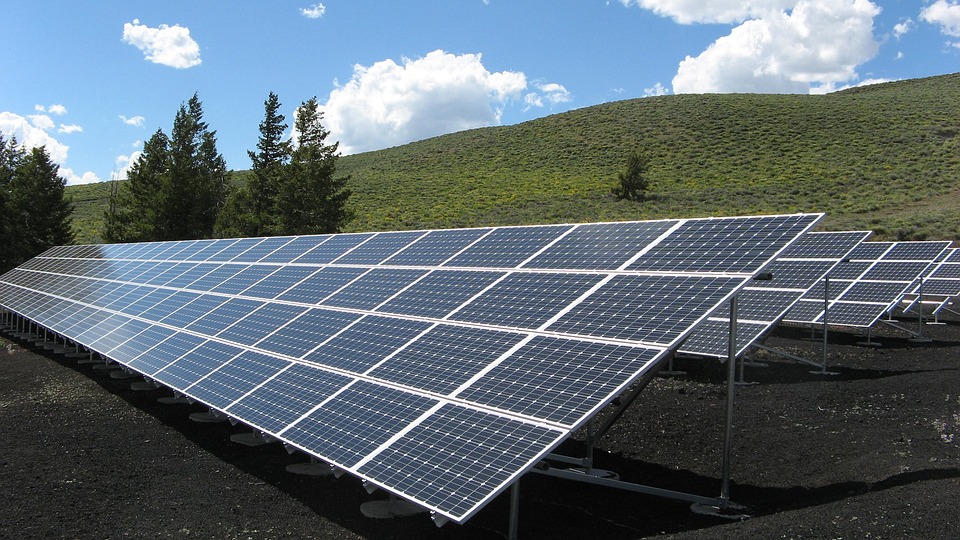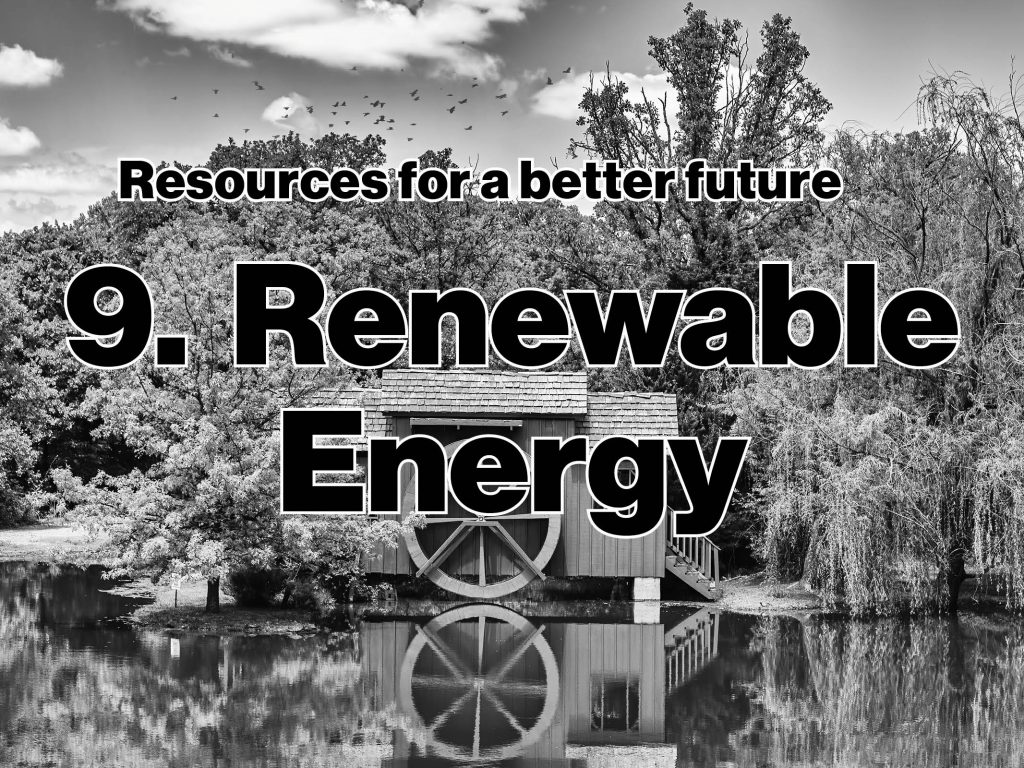
by Alf Hornborg
The concept of renewable energy is generally used for electric power that is not derived from finite sources such as stocks of fossil fuels or uranium. It includes the harnessing of flows such as direct sunlight, wind, and water. Harnessing such flows for electricity production requires technologies that are fundamentally different from the technologies used for deriving mechanical power from burning stocks of coal, oil, or gas. This applies to wind turbines and hydroelectric dams as much as it does to photovoltaic panels, but the focus here will be on solar power.
The rise of the fossil economy
The burning of fossil fuels as sources of mechanical power began with the steam engine in Britain in the 1760s. This innovation was essential to the Industrial Revolution. It marked a transition from relying on organic and flow-based energy sources propelled by current sunlight—such as human labour, draft animals, watermills, and windmills—to the combustion of subterranean mineral stocks. These mineral stocks—coal, oil, and gas—contain energy from ancient sunlight accumulated in organisms and deposited as sediments in the Earth’s crust.
The energy transition of the Industrial Revolution was not simply a discovery of how mineral energy could be converted into mechanical power. The harnessing of mineral energy required capital, that is purchasing power. As the wealthy core of the world’s greatest colonial empire, Britain was able to invest in steam technology. The expansion of steam technology in late eighteenth-century Britain was thus a process linked to the British appropriation of African slave labour and American plantation land. It saved Britain substantial quantities of labour time and agricultural land, but at the expense of great amounts of African labour and American land.
Energy technology – part nature, part society
The experience of the Industrial Revolution in Britain and other wealthy areas of the world was interpreted as a miraculous achievement of engineering. This is undeniable but does not tell the whole story. Technologies are not merely ingenious ideas or blueprints applied to nature. For them to materialize, engineers must have access to specific physical components—and at specific ratios of exchange (that is, prices). Engineering was certainly a necessary condition for the establishment of steam technology in early industrial Britain, but it was not a sufficient condition. The technology for harnessing the energy of coal was contingent on the market prices of raw cotton, African slaves, the labour of coal miners, Swedish iron, lubricants, and other inputs in relation to the market prices of exported cotton textiles. The physical existence of the machine, in other words, hinged not only on the revelation of nature, but also on social processes of exchange. However, this hybrid essence of technology—part nature, part society—has largely escaped the modern conception of engineering.
Across the political spectrum, there is a general faith in the capacity of modern society to shift to renewable, non-fossil energy sources without substantially reducing its levels of energy use
By the end of the twentieth century, natural scientists had recognized that the combustion of fossil fuels is a major source of greenhouse gas emissions contributing to climate change. There have also been concerns about the depletion of finite mineral energy stocks and the decreasing net energy return on energy expended on extraction, also referred to as ERO(e)I (Energy Return On energy Investment). Moreover, the huge global disparities in per capita energy use are no longer easily rationalized as uneven development but suggest structural and increasing gaps between wealthier and poorer parts of world society. Given the dominant understanding of energy technology, however, these problems have generally not informed mainstream visions of the prospects of an increasingly globalized modern society. In these visions, the growing per capita use of energy continues to be fundamental to social progress, regardless of energy source. The problems with fossil energy are viewed as challenges of engineering. Across the political spectrum, there is a general faith in the capacity of modern society to shift to renewable, non-fossil energy sources without substantially reducing its levels of energy use.
Will renewables replace fossil fuels?
The main candidates for replacing fossil with renewable energy are solar and wind power. Experts are divided regarding their potential to replace fossil fuels. Some see no technical or economic obstacles to such a transition. Skeptics have argued that renewable energy technologies applied at such a scale would require impractically huge amounts of materials, space, or energy. Some have emphasized that the production and maintenance of infrastructure for production of renewable energy is based on fossil energy to such an extent that the energy derived from it is very far from carbon-free. This is particularly obvious where the manufacture of solar panels is conducted in coal-powered factories, as in China. Given that the world economy is currently propelled by fossil energy to about 90%, some have concluded that economic investments in renewable energy represent a fossil energy subsidy of similar proportions. Also, given this reliance on fossil fuels, a rise in prices of fossil energy cannot simply be hailed in terms of an increasing competitiveness for solar, as it will translate into higher production costs for alternative technologies. More centrally, given the fact that the cheapening of solar panels in recent years to a significant extent is the result of shifting manufacture to China, we must ask ourselves whether European and American efforts to become sustainable should really be based on the global exploitation of low-wage labor and abused landscapes elsewhere. The global, societal conditions for energy technologies tend to be equally overlooked whether we are accounting for the eighteenth-century shift to fossil energy or deliberating about how to abandon it. Both steam engines and solar panels have relied on asymmetric global flows of biophysical resources such as embodied labor, land, energy, and materials.
A transition to renewable energy generally focuses on electricity production, but most of the total global energy use occurs in other contexts, such as non-electric transports. Electricity globally represents about 19% of total energy use. In the year 2017, only 0.7% of global energy use derived from solar power and 1.9% from wind, while over 85% relied on fossil fuels. In March 2018, Vaclav Smil estimated that as much as 90% of world energy use derives from fossil sources, and that the share is actually increasing. Solar power is not displacing fossil energy, only adding to it. The pace of expansion of renewable energy capacity has stalled—it was about the same in 2018 as in 2017. Meanwhile, the global combustion of fossil fuels continues to rise, as do global carbon emissions.
We have every reason to dismantle most of the global, fossil-fueled infrastructure for transporting people, groceries, and other commodities around the planet
Downscaling energy needs
How should we understand and transcend this impasse? To continue burning fossil fuels cannot be an option, but to believe that modern, high-energy society can be maintained based on renewable energy is similarly deluded. We shall certainly continue to need electricity, for example to run our hospitals and computers. But we have every reason to dismantle most of the global, fossil-fueled infrastructure for transporting people, groceries, and other commodities around the planet. This means making human subsistence independent from fossil energy and substantially reducing our mobility and consumption. Solar power will no doubt be an indispensable component of humanity’s future, but this will not happen as long as we allow the logic of the world market to make it profitable to transport essential goods halfway around the world. In order to provide the conditions for a sustainable technology, we must begin by establishing a sustainable economy. Crucially, also, we must modify our understanding of the very idea of technology. Contrary to our modern worldview since the Industrial Revolution, technology is not a neutral way of revealing and harnessing the forces of nature. A better way to define technology is to acknowledge that it is a global social phenomenon and a moral and political question rather than simply one of engineering. If we forget about this distributive aspect of technology, it will likely continue to save time and space for a global elite at the expense of human time and natural space appropriated elsewhere.
Further resources
Alf Hornborg. Nature, society, and justice in the Anthropocene: Unraveling the money-energy-technology complex. Cambridge: Cambridge University Press, 2019.
Argues that modern energy technologies, in exploiting global differences in the price of labor and resources, are based not only on politically neutral revelations of natural forces but crucially also on accumulation of the capital invested in harnessing them.
Dustin Mulvaney. Solar power: Innovation, sustainability, and environmental justice. Oakland, CA: University of California Press, 2019.
Discusses what changes would be required in the life cycle of photovoltaic solar power technology to make it just and sustainable.
Vaclav Smil. Power density: A key to understanding energy sources and uses. Cambridge, MA: MIT Press, 2015.
Compares different energy sources in terms of the amount of energy that can be derived from them per square meter of space.
Alf Hornborg is an anthropologist and Professor of Human Ecology at Lund University, Sweden. His research focuses on theorizing the cultural and political dimensions of human-environmental relations in different societies in space and time. His books include The Power of the Machine (2001), Global Ecology and Unequal Exchange (2011), Global Magic (2016), and Nature, Society, and Justice in the Anthropocene (2019).
